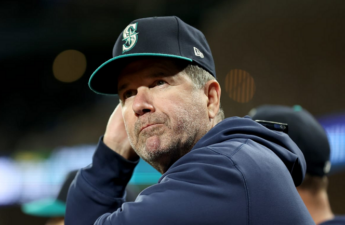It’s becoming a well-documented fact that the US stock market these days is rallying on bad news and crashing on good news. But nowhere is this more evident than on days when unemployment figures are announced.
Yesterday, the market rallied 217 points on the back of the worst employment report in a quarter-century. Though the more compelling fact is this: “The loss since November is the biggest 3-month drop since immediately after the end of World War II, when the defense industry was shutting down for conversion to civilian production.” (CNN)
We have never seen a faster unraveling of an employment market in United States history. And despite that everyone expects it to get worse in the months ahead, each month still manages to “beat expectations” in terms of how quickly jobs are disappearing. Not only that, but each past month’s figures are quietly getting revised upwards as well, meaning that things now are even worse than you’re being told – you’ll just find out later.
Combine this with the fact that unemployment is around 18% using the methodology used during the Great Depression, and that at this temporal stage in the Depression (if we equate the 2008 crash with the 1929 crash), unemployment was around 10%, and we have an existential crisis the likes of which no one can really comprehend.
But the market likes it. Big-time.
Part of this, no doubt, is because devastating employment figures increase the likelihood of further bailouts. And Wall Street likes bailouts because free money is fun. Arguments have been circulating on financial message boards and even some articles about bailouts being the next great American economic bubble. Just tank your performance, qualify for a bailout, then watch the free money flow in. Sometimes this backfires, as with AIG, Fannie/Freddie, and others whose stock value went to near-zero as the price of a bailout. Yet Wall Street continues to have faith that future bailouts will be the old no-strings no-national control style, with free cash and blind eyes for all.
The larger concern, of course, is that it’s not in business’ best interest to have jobs. Since the advent of Reaganomics, we’ve bought into this myth that somehow business is “on our side”, that they’re interested in creating jobs and putting America to work. It’s not true. Business is all about profit, and during the last 20 years, profit has been driven more than any other factor by cutting American payroll. The real, fundamental reason that Wall Street loves skyrocketing unemployment is that it means the businesses still left are becoming more profitable, at the direct expense of the American worker.
But the market has found an insidious way to prevent the obvious reversal of their disinterest in the fate of workers. One would expect that workers would just throw the middle-finger back to the market and there would be an all-out struggle. But with the infiltration of IRA’s, 401k’s, and the propaganda that the stock market is just like a savings account, only better, the market has embedded itself in the psychology of the American worker. American workers have to care about the market, because their future is tied up in it. Thirty years ago, this wouldn’t have been the case and we could jettison the market like so much chaff. But now, the first bailout passed the House almost entirely on the back of the argument that saving Wall Street would be the most efficient way to save American workers because their savings were tied up in Wall Street.
Eventually, of course, this vicious cycle of Wall Street reveling in the destruction of jobs will hit a wall. But almost certainly not before it’s too late to reverse the predominant trends and save what we currently think of as being this country.


